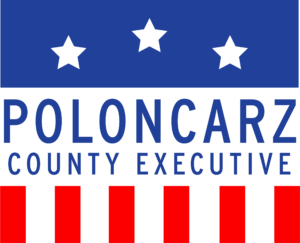By Matthew Spina:
County Executive Chris Collins is telling the county’s state-appointed control board to relax about a lawsuit that could conclude he overtaxed residents by $8 million.
The county executive assures the control board that he isn’t the least bit worried.
Even if a judge decides he owes taxpayers an $8 million refund, Collins figures he can pay it from the government’s bulging rainy day account.
Here’s what his budget director, Gregory G. Gach, says in a letter to control board Chairman Daniel C. Oliverio:
“While the administration believes a court ruling ordering a tax refund related to the 2011 property tax levy is highly unlikely, the maximum liability of $8 million could be paid using a small portion of the undesignated fund balance, which currently stands at $73.5 million.”
Gach wanted to set aside any fears that the court case would throw Collins’ new four-year financial plan out of whack. The plan shows Collins intends to delete 300 jobs in 2012 while holding the tax rate flat and delivering no additional operating support to the library system or Erie Community College. Meanwhile, he expects to run up a $10 million surplus this year.
The lawsuit sprang from his struggles with the Legislature over the 2011 budget. Under county law, county executives may not veto a Legislature’s budget cuts. But Collins, who never likes it when the Legislature messes with his proposed budgets, declared the Legislature’s spending cuts “null and void.”
To Collins, each cut violated some other law, or knocked the budget out of balance, so he figured he didn’t have to follow them. For example, because the County Charter requires there be an Erie County attorney, he said county lawmakers had no right to delete the budget line that funded the job, even though lawmakers were merely replacing it with a budget line allowing a salary of about $100,000 a year, not the $150,000 Collins insisted on paying. Four Legislature Democrats took Collins to court and won in the first round when State Supreme Court Justice Joseph R. Glownia ruled that “the Erie County Charter does not permit the county executive to declare reductions to the budget null and void.”
That would seem to force the county executive to accept the Legislature’s spending cuts. But the property tax bills Collins sent out in February were calculated as though Glownia had never ruled, except for $451,000 in cuts that Collins no longer contested. A trim of $451,000 is a tiny sum when viewed against the $235 million the government levied in property taxes this year, and it barely registered on most tax bills.
“The other cuts that we declared null and void were illegal and improper based on the County Charter, state law, federal law, and previous case law,” Gach told the county’s Fiscal Stability Authority.
By February, Collins had signaled his intent to appeal. He also asked to argue the matter again before Glownia because his outside lawyer had to hastily prepare the administration’s defense at budget time last year.
H. Todd Bullard of the Harris Beach law firm wasn’t even in the courtroom and had to be patched in by telephone.
Glownia agreed to hear the arguments a second time. But that has not yet happened. Sean E. Cooney, a lawyer for the Legislature Democrats who has donated his time, said the Collins lawyers have yet to present all the legal briefs that would set the stage for new arguments. The Collins team and Bullard say they have indeed done so, and it is up to the court to determine the next step.
Regardless, Glownia’s decision from December remains in effect. Though Collins intends to appeal, Cooney said any taxpayer could use it as a springboard to seek a tax refund.
A tax refund totaling $8 million represents just 3 percent of the county’s tax levy, which translates to about $15 on a home assessed at $100,000.
Legislature Democrats last year weren’t actually trying to cut property taxes. They wanted Collins to honor their budget cuts so they could redirect the spending toward their priorities, the libraries and cultural agencies, for example. But Collins vetoed the added spending, which he can do. That would have reduced the budget’s bottom line and the tax levy by around $8 million, had he honored the Legislature’s moves.
The control board’s Finance Committee didn’t raise the matter with Gach this week when members reviewed the plan with him. The full control board is expected to approve the Collins forecast Monday.
The county executive and the state-appointed financial overseers are on good terms. Collins will turn to the control board again this year to borrow millions of dollars to finance road and bridge repairs and other major undertakings. With the control board’s higher credit rating, the government saves money on repayment costs, and the control board ensures its existence as long as it holds debt.
